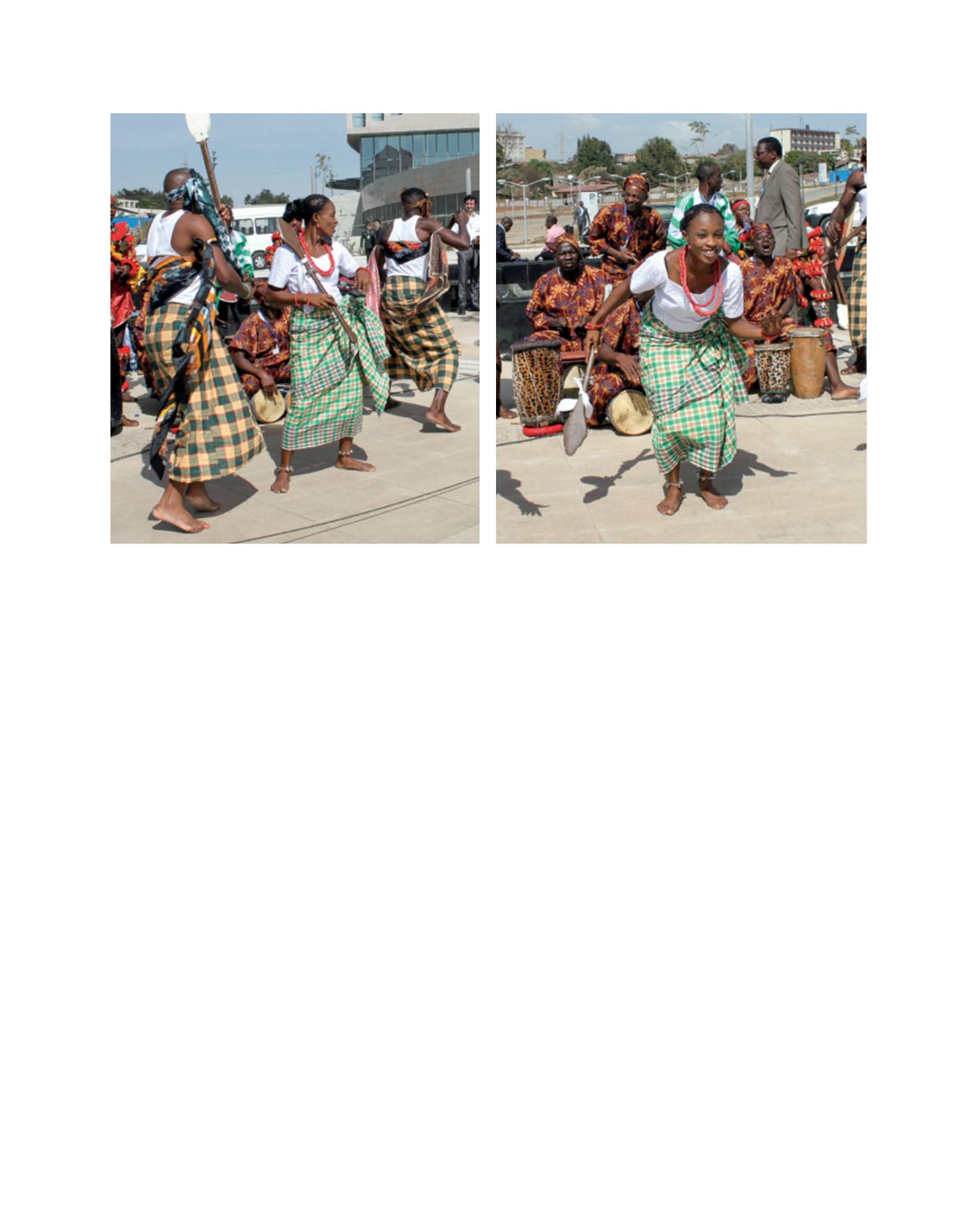

[
] 160
African Union Agenda 2063
In May 2013 the Organization of African Unity (OAU)/African
Union commemorated its fiftieth anniversary (40 years of the
OAU and 10 of the AU). The anniversary was celebrated under
the theme ‘Pan-Africanism and African Renaissance’, and it
provided the continental organization with opportunities to take
stock of the key milestones of the past 50 years and to project
to the future. As the African Union looked ahead into the next
50 years, there was a need to reflect on where the organization
wanted Africa to be in 2063, what would be our exact contribu-
tion, and what would be the role of all stakeholders in achieving
that vision. Hence a strategic framework was developed, the
African Union Agenda 2063, to make sure that Pan-Africanism
and African wisdom and the legacy left by our founding leaders
lives on and is duly transferred to the coming generations.
Agenda 2063 in its popular version sets out seven African
aspirations for 2063 which reflect the African Union’s desire
for shared prosperity and well-being, as follows:
• a prosperous Africa based on inclusive growth and
sustainable development
• an integrated continent, politically united and based on the
ideals of Pan-Africanism and the vision of African Renaissance
• an Africa of good governance, respect for human rights,
justice and the rule of law
• a peaceful and secure Africa
• an Africa with a strong identity, common heritage,
values and ethics
• an Africa where development is people-driven, unleashing
the potential of women and youth
• Africa as a strong, united and influential global player
and partner.
In the second aspiration, Pan-Africanism ideals and spirit
need to be promoted and taught in all school curricula.
Aspiration number five entails the entrenchment of cultural
values, identity, heritage, ethics, common history, destiny,
respect for religious diversity and consciousness of African
peoples and their diasporas. The African creative arts and
industries will be celebrated throughout the continent
and the diaspora. African languages will be the basis for
administration and integration. African values of family,
community, hard work, merit, mutual respect and social
cohesion will be firmly entrenched.
The development of 10-year implementation plans for
African Union Agenda 2063 is currently underway and these
plans will contribute the achievement of these aspirations and
the building of an integrated and peaceful continent.
Culture is fundamental, although not the only factor for
defining and understanding the human condition. Culture
affects how people think and act. It can be considered as
the way humans and societies assign meaning to the world
around them and define their place in that world. It is
manifested in many ways including languages and words;
ideas and ideologies; customs and traditions; beliefs and
religions; rituals and ceremonies; art and music; architec-
ture and furniture; dress and fashion; games; images – in
short, anything that is symbolic or representative of the
values, norms, perceptions and interest of a culture.
Cultural diversity contributes to the expression of national
and regional identities and more widely to the building of
Pan-Africanism. The promotion of cultural values and
practices is known for its capability and potential for peace-
making and conflict resolution.
A Nigerian cultural troupe: culture includes intangible and tangible heritage which is varied, complex and in constant evolution
Images: African Union
A
gree
to
D
iffer

















